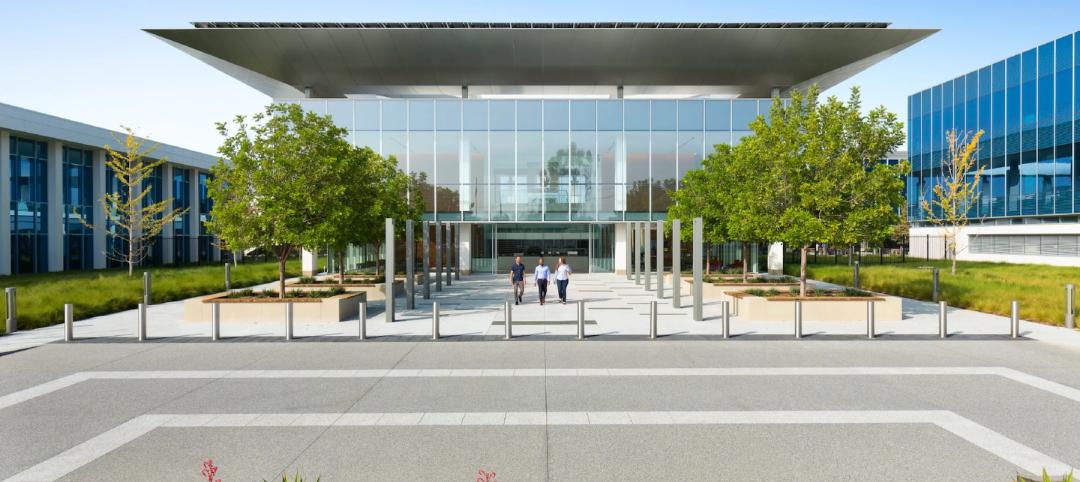DALLAS – Schneider Electric, a global specialist in energy management, announced a project with North Carolina State University to improve energy efficiency and drive sustainable, clean energy projects in 1.6 million square feet of building space across 13 campus facilities. As part of a $20 million performance contracting project, the university will implement 89 separate energy conservation measures (ECMs). Upon completion of the installation, NC State University will save approximately 10,137,668 kilowatt hours of electricity and 68,785 decatherms of natural gas annually, which is equivalent to planting 80,376 acres of trees or removing 43,158 cars from the roads over the next 15 years.
The performance contract with Schneider Electric is helping the university fast-track backlogged building upgrades, and also to meet the requirements of Senate Bill 668 and the President’s Advisory Committee on Efficiency and Effectiveness (PACE) set forth by former University of North Carolina President Erskine Bowles to drive energy efficiency improvements on campuses across the state. The project is leveraging NC State University’s expertise in engineering and energy efficiency by tapping more than 10 alumni personnel and one senior engineering student at NC State University in development and construction of the project.
“At NC State University, we’re committed to building a sustainable campus, an effort that drives energy efficiency while offering a state-of-the-art learning environment for students,” said Kevin McNaughton, associate vice chancellor for facilities. “Through performance contracting, we’re able to take on these projects immediately without incurring cost to the taxpayer or the students. We are confident this strategy will reduce continuing costs, provide for better facilities to support education and research, and substantially reduce our carbon footprint."
As part of phase one, a Schneider Electric partner has completed installation of a solar-thermal system on the roof of the NC State University campus gym, Carmichael Complex. Once in operation, the system will help heat nearly one million gallons of water in two swimming pools. The clean energy project features 112 solar panels, each measuring 10 feet by 4 feet, and can heat water to approximately 100 degrees as it is circulated onto the roof and piped through the solar facility.
“Through this performance contract, we are helping the university gain critical insight into energy use and manage energy resources more effectively,” said James Potach, Energy Solutions senior vice president, Schneider Electric. “We’re helping the university achieve its ACUPCC objectives by implementing an energy efficiency project that will make a significant contribution toward reducing the carbon footprint on campus." The American College & University Presidents’ Climate Commitment is a high-visibility effort to address global climate disruption undertaken by a network of colleges and universities that have made institutional commitments to eliminate net greenhouse gas emissions from specified campus operations, and to promote the research and educational efforts of higher education to equip society to re-stabilize the earth’s climate.
About Schneider Electric
As a global specialist in energy management with operations in more than 100 countries, Schneider Electric offers integrated solutions across multiple market segments, including leadership positions in energy and infrastructure, industrial processes, building automation, and data centers/networks, as well as a broad presence in residential applications. Focused on making energy safe, reliable, and efficient, the company's 110,000 plus employees achieved sales of more than $26 billion in 2010, through an active commitment to help individuals and organizations “Make the most of their energy.”
Related Stories
Energy Efficient Roofing | Oct 28, 2022
Rooftop mini turbines can pair with solar panels
A new type of wind turbine can pair well on roofs with solar panels, offering a double source of green energy generation for buildings.
Energy-Efficient Design | Oct 24, 2022
Roadmap shows how federal buildings can reach zero embodied carbon emissions by 2050
The Rocky Mountain Institute (RMI) has released a roadmap that it says charts a path for federal buildings projects to achieve zero embodied carbon emissions by 2050.
Energy-Efficient Design | Oct 14, 2022
A DOE software suite is helping SmithGroup optimize its designs’ energy efficiency
AutoBEM can run more than 200,000 energy models in an hour.
| Sep 22, 2022
Gainesville, Fla., ordinance requires Home Energy Score during rental inspections
The city of Gainesville, Florida was recently recognized by the U.S. Dept. of Energy for an adopted ordinance that requires rental housing to receive a Home Energy Score during rental inspections.
| Sep 7, 2022
Use of GBCI building performance tools rapidly expanding
More than seven billion square feet of project space is now being tracked using Green Business Certification Inc.’s (GBCI’s) Arc performance platform.
Sponsored | BD+C University Course | Aug 24, 2022
Solutions for cladding performance and supply issues
This course covers design considerations and cladding assembly choices for creating high-performance building envelopes — a crucial element in healthy, energy-efficient buildings.
| Aug 23, 2022
New Mass. climate and energy law allows local bans on fossil fuel-powered appliances
A sweeping Massachusetts climate and energy bill recently signed into law by Republican governor Charlie Baker allows local bans on fossil fuel-powered appliances.
| Aug 22, 2022
Less bad is no longer good enough
As we enter the next phase of our fight against climate change, I am cautiously optimistic about our sustainable future and the design industry’s ability to affect what the American Institute of Architects (AIA) calls the biggest challenge of our generation.
| Aug 16, 2022
DOE funds 18 projects developing tech to enable buildings to store carbon
The Department of Energy announced $39 million in awards for 18 projects that are developing technologies to transform buildings into net carbon storage structures.
| Aug 15, 2022
Boston high-rise will be largest Passive House office building in the world
Winthrop Center, a new 691-foot tall, mixed-use tower in Boston was recently honored with the Passive House Trailblazer award.
















